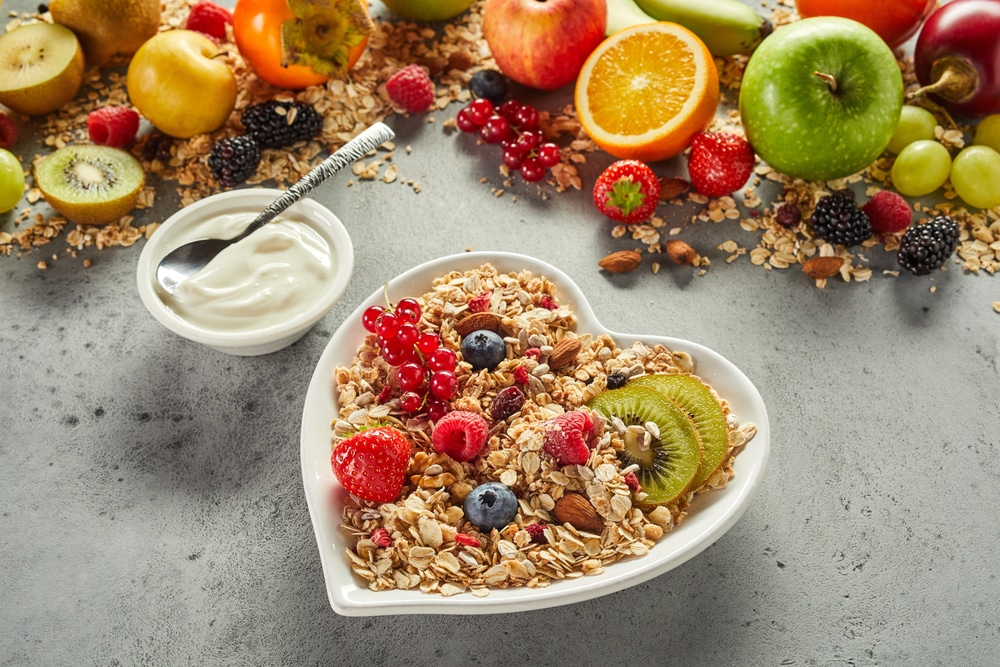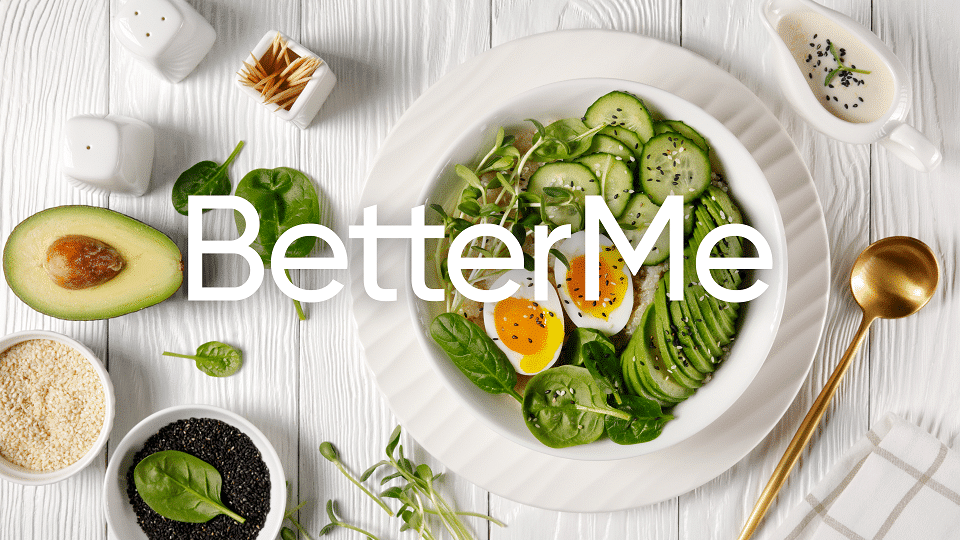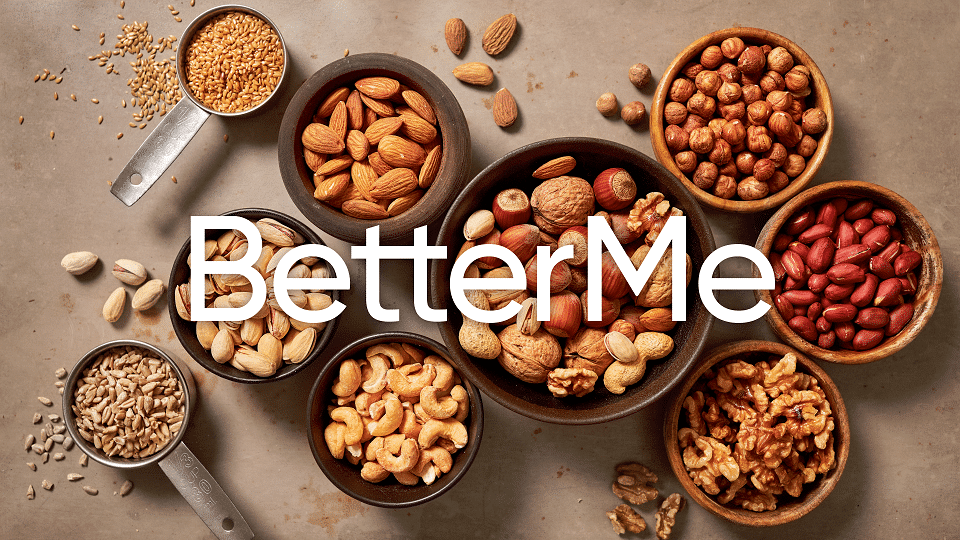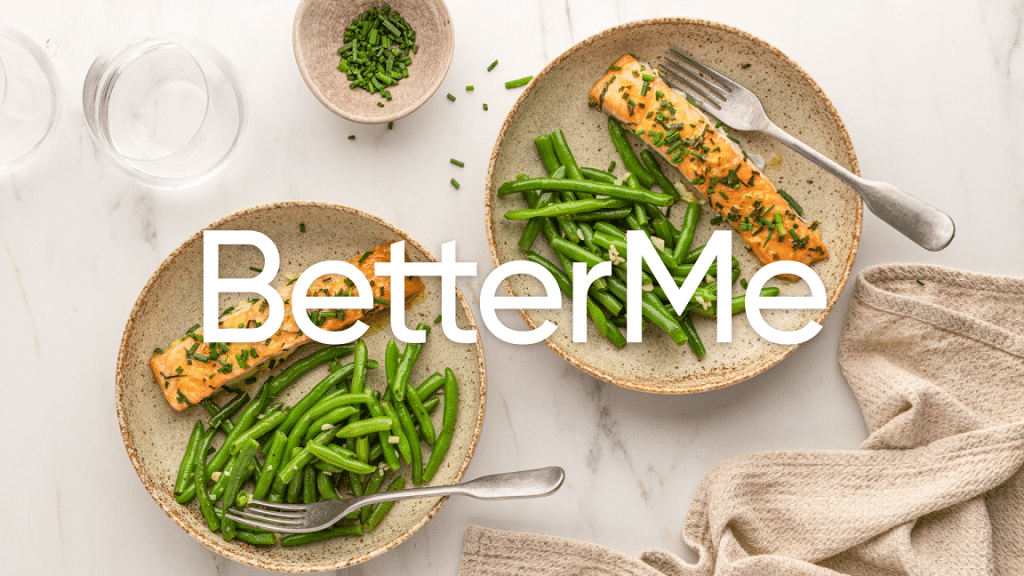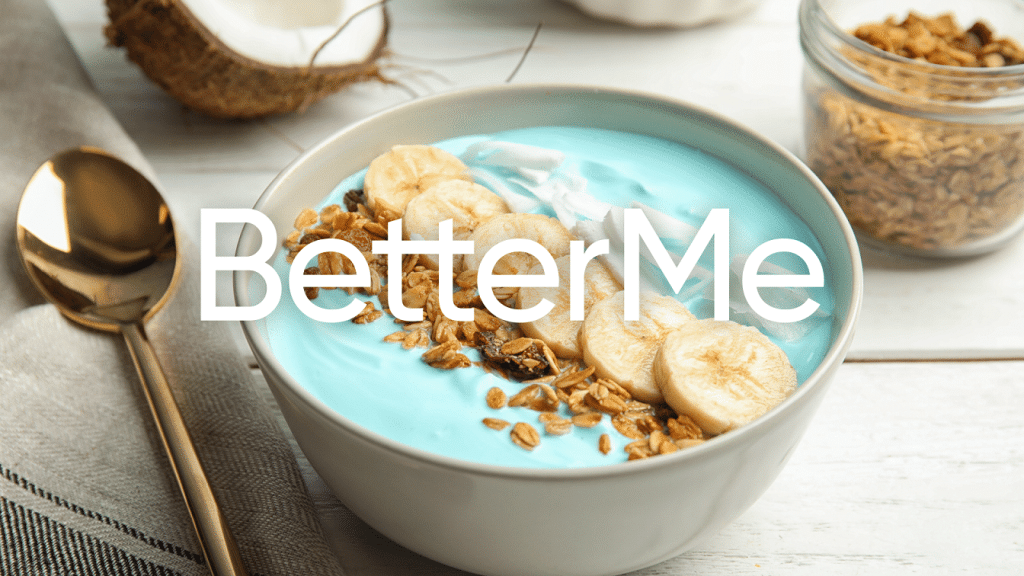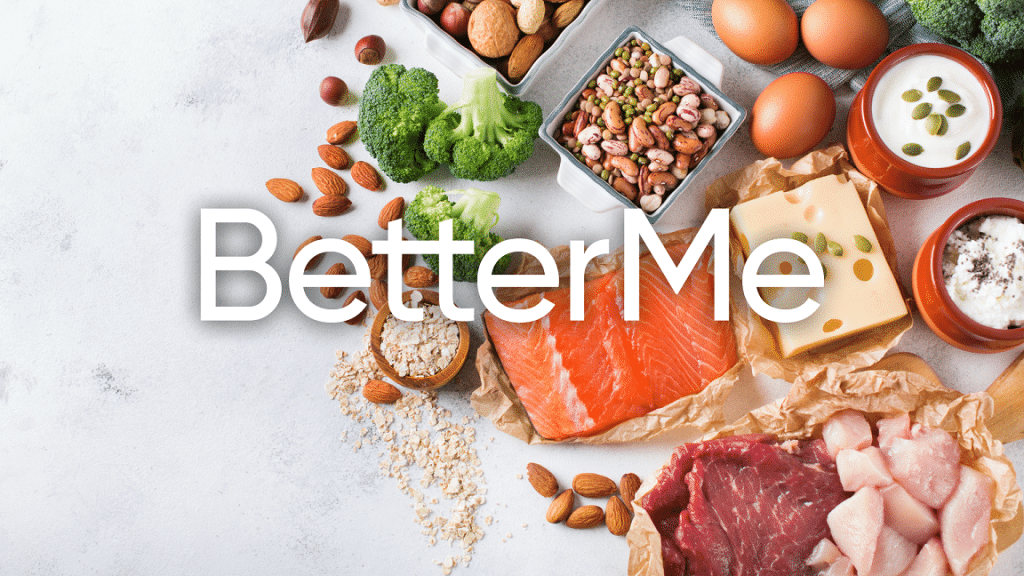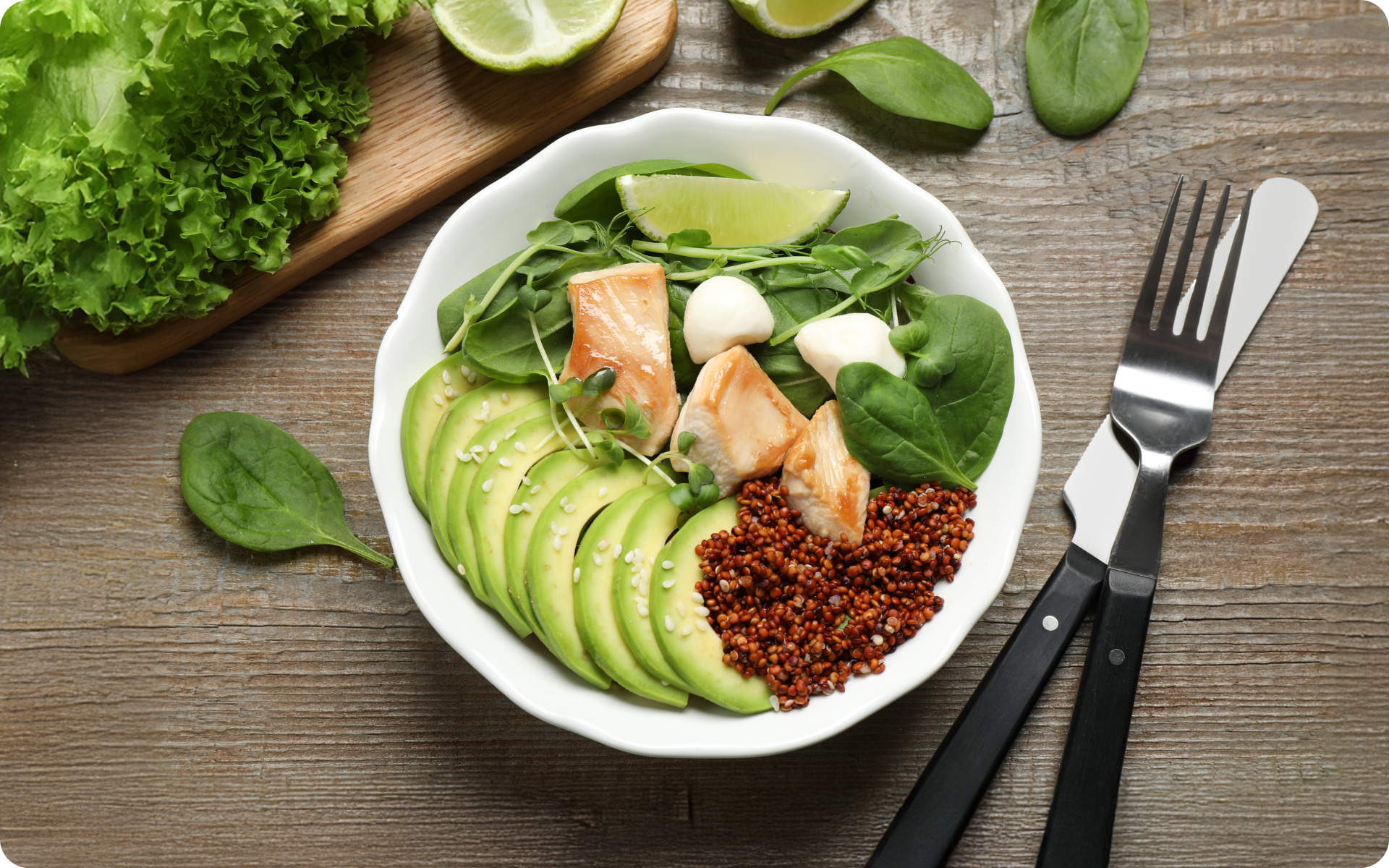You’ve heard it time and time again: breakfast is the most important meal of the day. Now what if you’re trying to put on weight? What can you eat for breakfast that will help you reach your goals? Don’t worry, we’ve got you covered. This article has some high-calorie breakfast ideas that will help you gain weight in a healthy way. But before that, we’ll look into why you might need to gain weight and then what kind of breakfast is best for you.
Get your personalized
meal plan!
Why Might You Need To Gain Weight?
There are a few reasons why someone might need to gain weight. Being underweight can be just as dangerous as being overweight, and it can also lead to a number of health problems.
Some health problems related to being underweight include:
Malnutrition
Malnutrition is a condition that results from not getting enough nutrients, from having increased nutrient needs (due to an illness, for example) or from not being able to absorb nutrients properly. It can cause a wide range of health problems, including hair loss, weak bones, and even death (14).
Poor Immune Function
If you’re underweight or malnourished, your immune system may not be as strong as it should be. This means you’re more likely to get sick and it will take longer to recover from illness (4).
Anemia
Anemia is a condition that occurs when you lack enough red blood cells. This can lead to fatigue, shortness of breath, and other health problems (2). Some forms of anemia are caused by a lack of certain nutrients.
Osteoporosis
Osteoporosis is a condition that causes your bones to become weak and brittle. It can then lead to fractures and other health problems (13).
This may occur when you don’t get enough calcium and vitamin D, both of which are essential for strong bones. And if you’re underweight or malnourished, you’re more likely to be deficient in these nutrients.
Fertility Problems
If you’re trying to conceive, being underweight can make it more difficult. This is because being underweight can disrupt your menstrual cycle and make it harder for you to ovulate (15).
In some cases, being underweight can also lead to infertility (26).
Loss Of Muscle Mass
If you’re underweight, you may have also lost muscle mass. This can lead to a decrease in strength and endurance, and make it more difficult to do everyday activities.
Read More: The Importance Of Breakfast: What Science Says About The First Meal Of The Day
What Kind Of Breakfast Is Best For You?
If you’re trying to gain weight, your breakfast should be tailored to your specific needs. Here are the right breakfast qualities for weight gain:
High In Calories
Calories are the most important factor when it comes to weight gain. To gain weight, you need to consume more calories than your body burns (23). A high-calorie breakfast is the best way to start your day and ensure that you’re getting the nutrients you need to support your goals.
All food groups have calories, in different amounts. Carbohydrates, fats, and proteins all contain calories, and it’s important to include all three in your diet if you want to gain weight.
Carbohydrates contain 4 calories per gram, fats contain 9 calories per gram, and proteins contain 4 calories per gram (18).
Healthy
A common mistake made by people trying to gain weight is eating unhealthy foods. Foods that are high in added sugar and saturated fat can lead to weight gain, but they’re also not great for your health (10).
Sugar, for example, can cause tooth decay and may increase your risk of diabetes and heart disease. And saturated fat can raise your cholesterol levels and contribute to your risk of heart disease (24).
You may become “skinny-fat” a term used to describe someone who is thin but has a high percentage of body fat. Such people tend to have greater proportions of visceral fat, the type of fat that surrounds your organs and contributes to your risk of heart disease and other health problems.
Instead, focus on eating healthy foods that are high in calories, protein, and other nutrients. These include:
Whole Grains
Whole grains are a good source of carbohydrates, fiber, and micronutrients (22). They can help you gain weight in a healthy way.
Intense sweat sessions, working weight loss tips, lip-smacking recipes come in one package with the BetterMe app. And all of it is at your fingertips, start transforming your life now!
Fruits And Vegetables
These are a good source of vitamins, minerals, and antioxidants (16). They can help you meet your nutritional needs, as well as provide the calories you need to gain weight.
Nuts And Seeds
Nuts and seeds are a good source of healthy fats, protein, and fiber (17). They can help you reach your calorie goals and provide the nutrients you need to be healthy.
Dairy Products
Dairy products are a good source of protein, calcium, and vitamin D (21). They can help you reach your daily nutrient needs and add extra calories to your diet.
Healthy Fats
Healthy fats, such as those found in olive oil, avocados, oily fish, and seeds and nuts, can help you gain weight in a healthy way. They provide calories and important nutrients, such as omega-3 fatty acids (1).
Protein
Protein is an essential nutrient for athletes and people trying to gain weight. It helps build muscle mass and provides the energy you need to be active (25).
Beverages
Choose calorie-rich beverages that aren’t loaded with added sugar and artificial sweeteners. Options include whole milk and fresh fruit juice.
Easy To Prepare
The thing about lifestyle changes is that they need to be practical and easy to stick to. When it comes to breakfast, you don’t want something that’s going to take a lot of time or effort to prepare.
That’s why a high-calorie breakfast that’s easy to make is ideal. Choose meals that can:
- Be made in batches and frozen, so you can have them ready when you need them
- Be prepared in advance and stored in the fridge or freezer
- Be eaten on the go
- Require minimal preparation time
Flavorful
Weight gain shouldn’t mean eating bland and boring foods. A high-calorie breakfast should be delicious and satisfying. Choose meals that are packed with flavor, so you’ll look forward to eating them every day.
Read More: High Fiber Cereal: How To Choose The Right Food To Eat For Breakfast
Best Breakfast Foods For Weight Gain
While there are many foods that you can eat for breakfast to gain weight, not all of them are equally nutritious or satisfying. Here are some of the best breakfast foods for weight gain:
Oatmeal
Oatmeal is a high-calorie, nutrient-rich breakfast cereal that’s perfect for gaining weight. It’s easy to prepare and can be made with many different flavors, so you’ll never get bored of it.
Nutrition-wise, this grain is a good source of fiber, protein, and B vitamins. Oats also contain anti-inflammatory compounds that may help protect your heart.
One cup of cooked oatmeal contains about 166 calories (6). You can add milk, fruit, nut butters, and various other foods to provide both a flavor and nutritional boost. You can even experiment with savory versions topped with a poached egg.
Eggs
Eggs are a high-quality protein source that’s perfect for breakfast. They’re easy to prepare and can be eaten in many different ways.
Their rich nutrition profile makes them a good choice for athletes and people trying to gain weight. Eggs are also a good source of:
- Vitamin D
- Choline
- Biotin
- Lutein and Zeaxanthin
One large egg contains about 72 calories and 6 grams of protein (7).
Protein Smoothies
Drinking homemade protein smoothies for breakfast is a great way to gain weight in a healthy way. They’re easy to make and can be packed with calories and nutrients.
Protein smoothies are also a convenient way to get part of your daily protein intake. They’re perfect for on-the-go mornings when you don’t have time to sit down and eat a traditional breakfast.
How many calories are in a protein smoothie depends on the ingredients that you use. A basic recipe that contains milk, yogurt, banana, and protein powder can have around 350 calories.
If your smoothie doesn’t contain enough calories, there are a few things you can do to add more.
- Add an extra serving of whole grains, such as oatmeal
- Add an extra serving of fruits or vegetables.
- Include a higher-calorie protein source, such as eggs or peanut butter.
- Add healthy fats, such as olive oil, avocados, or nuts.
- Use calorie-rich liquids as a base, such as whole milk or fruit juice.
Full Fat Yogurt
Yogurt is a great breakfast food for weight gain because it is high in calories and protein. Look for yogurt that is full-fat for the most calories. You can also add your own toppings, like nuts or granola, to boost the calorie count.
Aside from being a protein and calorie-rich breakfast food, yogurt is good for your gut. It contains probiotics, which are beneficial bacteria that help keep your gut healthy (19).
These bacteria are also thought to have an affect on your overall health, including your immune system and mental health (19).
Whether you’re looking to simply pep up your fitness routine, jazz up your diet with mouth-watering low-calorie recipes or want to get your act together and significantly drop that number on your scale – BetterMe app has got you covered! Improve your body and revamp your life with us!
Bananas
Bananas are another good breakfast food for weight gain. They are high in sugar and calories, which means they can help you pack on the pounds.
Additionally, bananas are a good source of potassium, which helps regulate blood pressure and support nerve and muscle function (3). Add them to a piece of whole wheat toast with nut butter, or slice them and use as a topping for your cereal, oatmeal, or yogurt.
Whole Grain Toast
Toast is another great breakfast option for weight gain. It is high in carbohydrates, which provide your body with energy, and it’s also a good source of fiber.
Choose whole-grain toast over white bread for the most nutritional benefits.
Adding toppings, like peanut butter or honey, can add extra calories and nutrients to your breakfast.
One piece of toast with peanut butter contains about 255 calories (8).
Milk
As far as breakfast beverages go, milk is a high-calorie option that is perfect for weight gain. It is a good source of protein, calcium, and vitamin D (21).
It also contains casein, a type of protein that is slowly digested and helps you feel full for longer (11).
Whole milk is the most calorie-rich milk option, with about 150 calories per cup (9). If you’re lactose intolerant, you can try soy milk or almond milk, both of which are more tolerable and have a considerable amount of calories. They are often fortified with calcium and vitamin D, and some brands may even have extra plant protein added to make them more nutritionally comparable with cow’s milk.
How To Gain Weight Safely
Contrary to popular opinion, gaining weight is not about stuffing your face with unhealthy foods. In fact, it’s much more important to make healthy choices if you want to gain weight in a healthy way.
Some tips for eating healthy while trying to gain weight are:
Maintain A Calorie Surplus
If you want to gain weight, you need to be in a calorie surplus, meaning you are eating more calories than your body needs just to get by. You don’t need to eat unhealthy foods to do this – in fact, it’s important to make healthy choices.
Eat Plenty Of Protein
Protein is an essential nutrient for a number of reasons, one of which is that it is a required building block for you to build muscle (12). It is also essential for many other bodily processes and functions. If you want to gain weight, you need to make sure you’re getting enough protein in your diet.
Choose Healthy Fats
Not all fats are bad for you. In fact, some fats are essential for a healthy diet. Omega-3 fatty acids, for example, are important for cognitive function and heart health (5).
In order to gain weight in a healthy way, make sure you’re including healthy fats in your diet. These fats can be found in foods like avocados, nuts, and olive oil.
Drink Plenty Of Fluids
Water is essential for human health, but it’s also important to drink plenty of fluids when you’re trying to gain weight.
Fluids help you feel full, and they also help maintain your fluid-electrolyte balance. Choose calorie-rich fluids like whole milk or fruit juice, and make sure you’re drinking enough each day.
Lift Heavy Weights While In A Calorie Surplus
One of the most underrated pieces of advice for people who are underweight and trying to gain weight is to lift heavy weights. This type of training will help you create the right environment for muscle growth (20).
While cardio is a great way to burn calories, it’s not the best way to put on weight. When you’re trying to gain weight, you want to consume more calories than you burn. Doing excessive amounts of cardio will make it difficult to reach this calorie surplus.
In order to make healthy gains, you need to focus on both diet and exercise. Eating a balanced and nutritious diet is essential for gaining weight, while strength training will help you put on muscle mass.
When done together, these two activities can help you reach your goals in a healthy way. Always talk to your doctor before starting a new exercise regimen, especially if you are being treated for any illnesses or medical conditions.
The Bottom Line
If you want to gain weight, you need to eat a balanced diet that includes all three macronutrients: carbohydrates, fats, and proteins. Focus on eating healthy foods that are high in calories and nutrients. These include whole grains, fruits and vegetables, nuts and seeds, dairy products, healthy fats, and protein.
And choose calorie-rich beverages that aren’t loaded with added sugar or unhealthy fats. If you follow these tips, you’ll be on your way to a healthy, high-calorie breakfast that will help you reach your weight gain goal.
DISCLAIMER:
This article is intended for general informational purposes only and does not serve to address individual circumstances. It is not a substitute for professional advice or help and should not be relied on for making any kind of decision-making. Any action taken as a direct or indirect result of the information in this article is entirely at your own risk and is your sole responsibility.
BetterMe, its content staff, and its medical advisors accept no responsibility for inaccuracies, errors, misstatements, inconsistencies, or omissions and specifically disclaim any liability, loss or risk, personal, professional or otherwise, which may be incurred as a consequence, directly or indirectly, of the use and/or application of any content.
You should always seek the advice of your physician or other qualified health provider with any questions you may have regarding a medical condition or your specific situation. Never disregard professional medical advice or delay seeking it because of BetterMe content. If you suspect or think you may have a medical emergency, call your doctor.
SOURCES:
- A healthy approach to dietary fats: understanding the science and taking action to reduce consumer confusion (2017, biomedcentral.com)
- Anemia (2022, ncbi.nlm.nih.gov)
- Bioactive compounds in banana fruits and their health benefits (2018, academic.oup.com)
- Body mass index and the risk of infection – from underweight to obesity (2018, pubmed.ncbi.nlm.nih.gov)
- Brain Health across the Lifespan: A Systematic Review on the Role of Omega-3 Fatty Acid Supplements (2018, ncbi.nlm.nih.gov)
- Calories Cooked Oatmeal (n.d., nutritionix.com)
- Calories in Egg (n.d., nutritionix.com)
- Calories in Toast With Peanut Butter (n.d, nutritionix.com)
- Calories in Whole Milk (n.d., nutritionix.com)
- Consumption of ultra-processed foods and health outcomes: a systematic review of epidemiological studies (2020, biomedcentral.com)
- Dairy-derived peptides for satiety (2020, sciencedirect.com)
- Dietary Protein and Muscle Mass: Translating Science to Application and Health Benefit (2019, ncbi.nlm.nih.gov)
- Diseases of Bone – Bone Health and Osteoporosis (2004, ncbi.nlm.nih.gov)
- Fact sheets – Malnutrition (2021, who.int)
- Female infertility – Symptoms and causes (2021, mayoclinic.org)
- Health Benefits of Fruits and Vegetables (2012, academic.oup.com)
- Health Benefits of Nut Consumption (2010, ncbi.nlm.nih.gov)
- How many calories are in one gram of fat, carbohydrate, or protein? (n.d., nal.usda.gov)
- Invited review: Probiotic yogurt quality criteria, regulatory framework, clinical evidence, and analytical aspects (2021, sciencedirect.com)
- Maximizing Muscle Hypertrophy: A Systematic Review of Advanced Resistance Training Techniques and Methods (2019, ncbi.nlm.nih.gov)
- Milk and Dairy Products and Their Nutritional Contribution to the Average Polish Diet (2019, ncbi.nlm.nih.gov)
- Perspective: Whole and Refined Grains and Health—Evidence Supporting “Make Half Your Grains Whole” (2019, academic.oup.com)
- Physical activity, food intake, and body weight regulation: insights from doubly labeled water studies (2010, academic.oup.com)
- Saturated Fatty Acids and Risk of Coronary Heart Disease: Modulation by Replacement Nutrients (2010, link.springer.com)
- The role of protein in weight loss and maintenance (2015, academic.oup.com)
- Types of reproductive disorders in underweight and overweight young females and correlations of respective hormonal changes with BMI (2015, ncbi.nlm.nih.gov)
